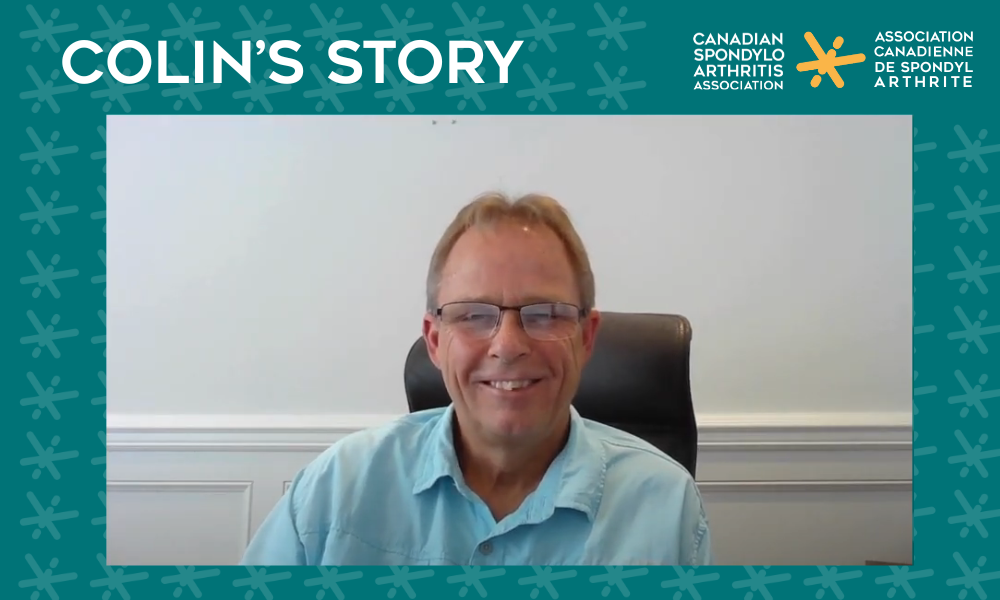▶ Watch: Colin on Life, Setbacks, and Renewed Strength with Psoriatic Arthritis
A candid conversation hosted by Brenda Dauder, Executive Director of the Canadian Spondyloarthritis Association.
About the Conversation
Psoriatic arthritis (PsA) can reshape a life—physically, emotionally, and socially. In this video, Colin shares more than five decades of experience: the shock of sudden disability, the freedom he felt on an effective biologic treatment (and the “golden handcuffs” of refrigeration and dosing schedules), the reality of side effects and cancer scares, and the discipline it takes to rebuild with mindset, food, movement, and consistency.
“There’ll be a lot of first steps with arthritis… The biggest thing I’d say are two words: start and consistency.” – Colin
Highlights from Colin’s Story
- Diagnosis & decades of change: From athlete to “waking up an invalid,” then years later finding renewed function on a biologic—and adapting again after a melanoma diagnosis required switching therapies.
- “Golden handcuffs” explained: Biologics brought freedom of movement but meant refrigerated, regular injections, complicating travel and daily life.
- Mindset matters: Colin describes PsA as a “mind over matter” disease—like wearing an invisible backpack of rocks every day—requiring daily, intentional effort.
- 1/3 Meds • 1/3 Food • 1/3 Exercise: Anti-inflammatory meds plus Mediterranean-style eating and regular activity formed his core approach.
- Stress & flares: Work and life stress can fuel inflammation; reducing stressors was essential to his well-being.
- Surgery and recovery: Foot deformities led to corrective surgeries—difficult, yet ultimately mobility-restoring and life-enhancing.
- Practical adherence tip: Keep meds by your toothbrush so taking them becomes as routine as brushing.
“It sounds simple, but it’s really difficult to execute daily. That’s why consistency beats big spurts.” – Colin
Colin’s Advice if You Feel Stuck
- Start tiny—today. One sit-up now, one tomorrow. Build slowly (think monthly, not daily, increases).
- Engineer your environment. Reduce stressors where possible; place meds where habits already live.
- Move, even a little. Walking, cycling, swimming, tennis, gentle strength—whatever keeps you consistently active.
- Reframe self-care. Carving out an hour for you can make you 25% better for your family.
- Stay team-based. Treat your rheumatologist as the hub of your care; bring questions and track changes.
“You can live a whole life. It’s harder—but possible—with the right attitude, plan, and support.”

